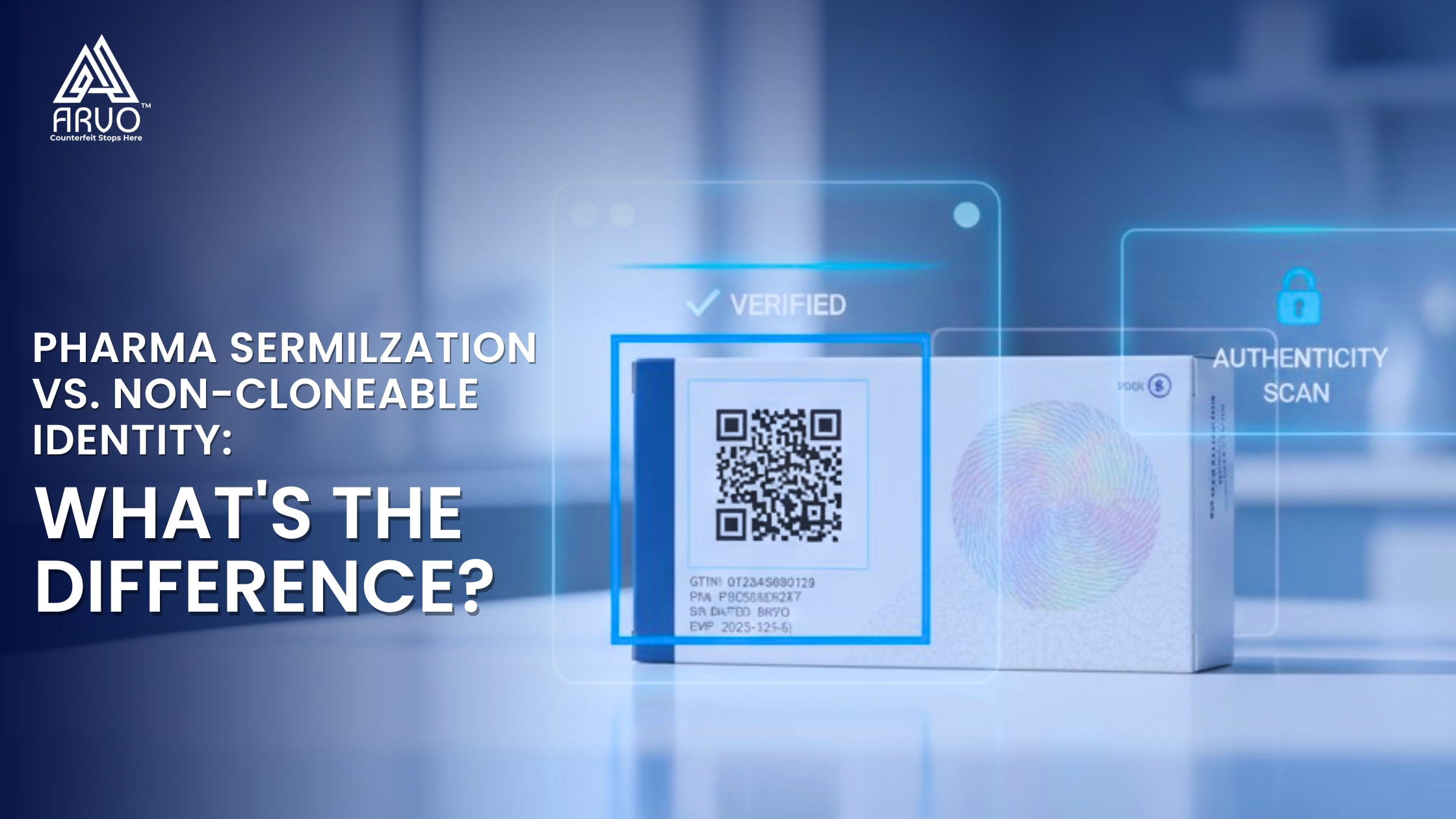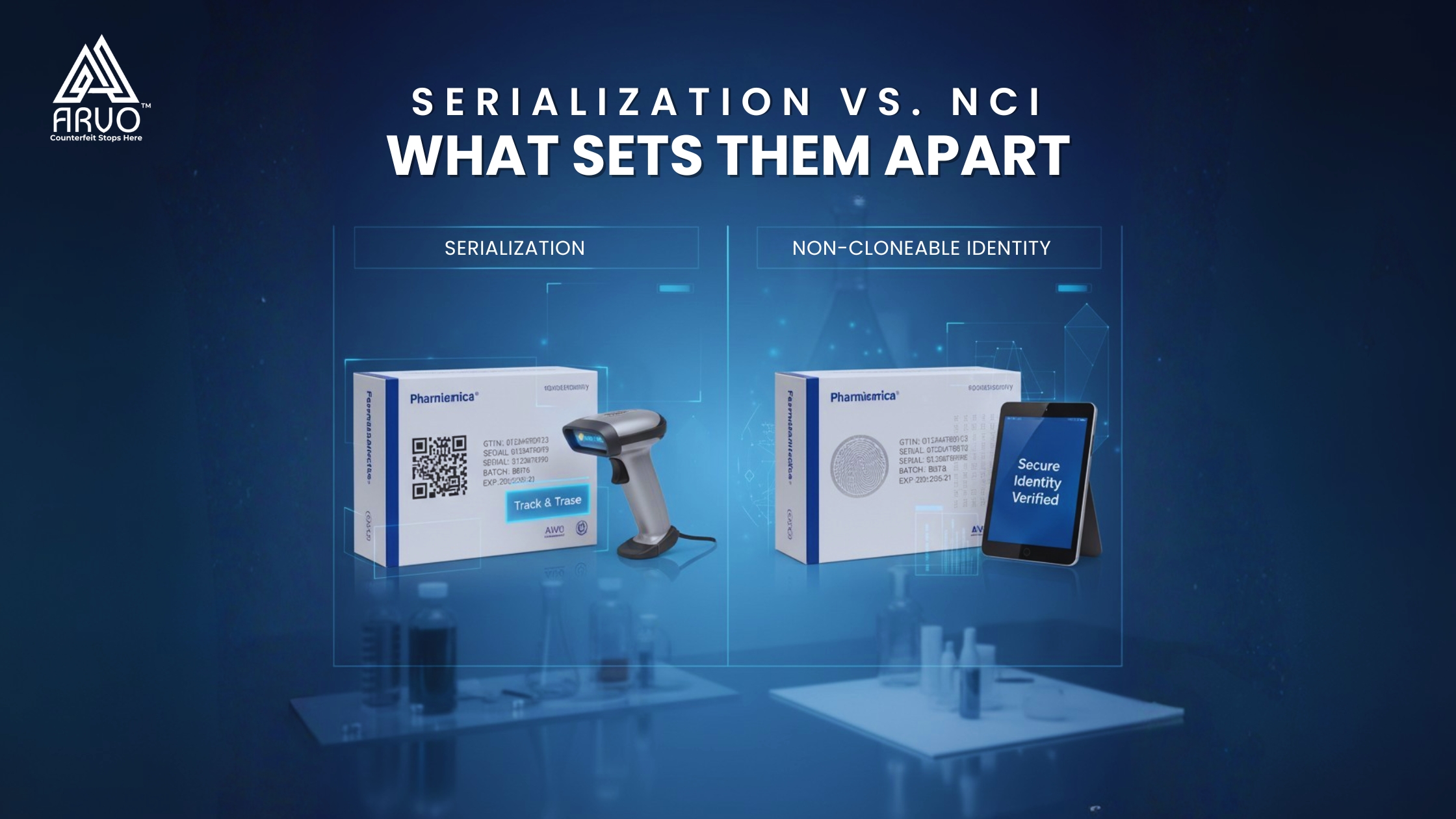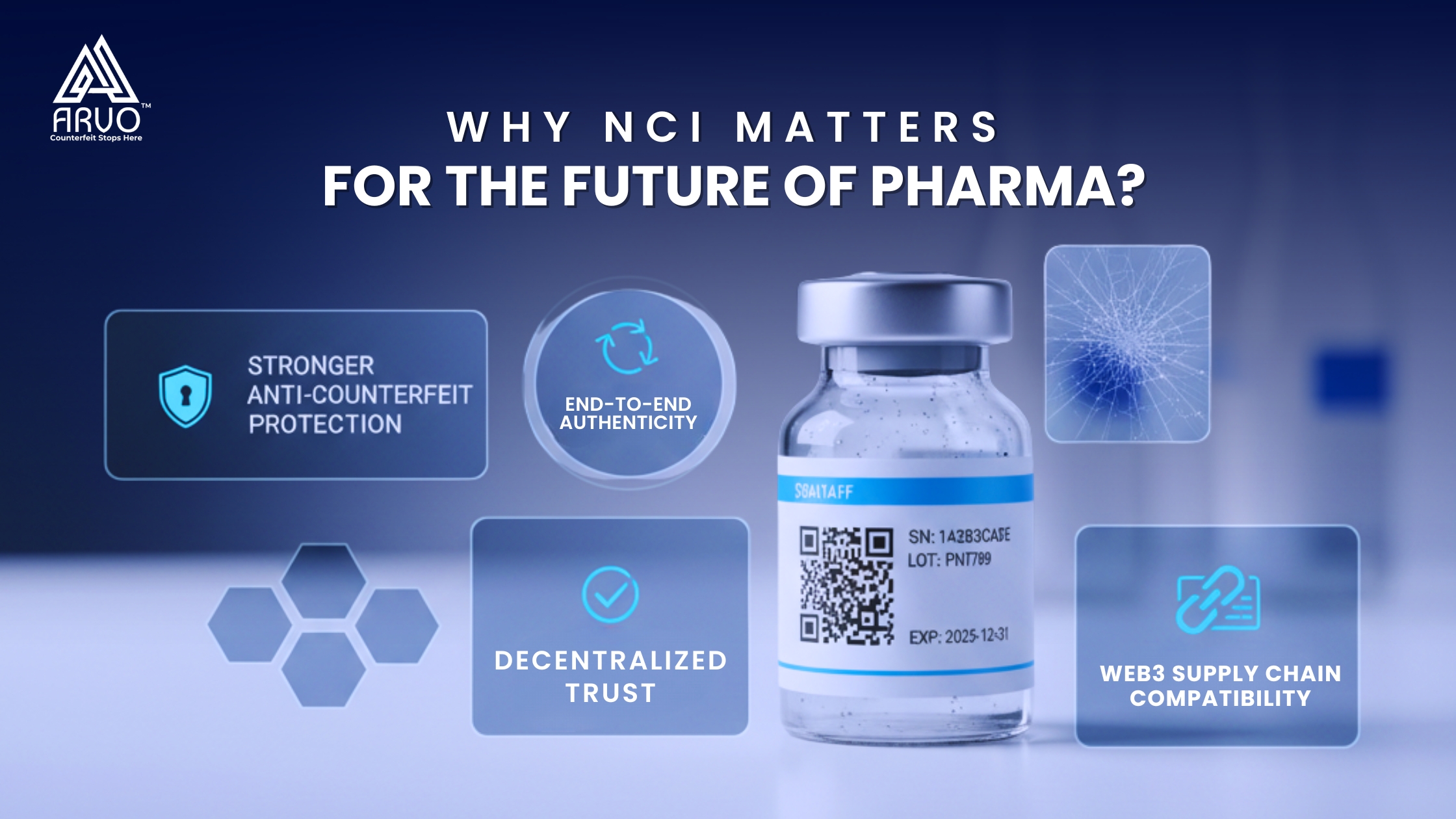
The pharmaceutical business is evolving rapidly, particularly due to the desire of regulators to find more powerful means of preventing counterfeit drugs. Pharma serialization and non-cloneable identity (NCI) are two concepts that receive much attention. They are not similar as both attempt to establish trust, make it easy to follow a product, and ensure patient safety. It is essential to know how they are different to people who operate supply chains, regulators, and innovators who are creating the future of health care and Web3.
What Is Pharma Serialization?
Pharma serialization refers to assigning a serial number to every sellable unit of a drug. The number is then followed as the product passes through the factory, through the wholesaler, distributor, pharmacy, and into the patient.
The major characteristics of Serialization.
- Unique Serial Codes- typically a combination of product ID (GTIN), a serial number, batch number, and expiry date.
- Regulatory Compliance – mandated by regulations such as the U.S. DSCSA, the EU FMD, and other regulations worldwide.
- Supply Chain Visibility – assists in identifying whether a product has been diverted, repackaged, or tampered with.
- Track-and-Trace – allows any person to verify the authenticity of a product at numerous checkpoints and prevent the entry of fakes to the market.
The Limitation
Serialization is primarily based on digital or printed codes. Although every code is distinct, it may still be:
- Copied,
- counterfeited, or
- changed.
Serialization provides you with visibility, but does not prevent the cloning of the code.
What Is Non-Cloneable Identity (NCI)?
NCI goes a step further. It employs a physical or cryptographic property that cannot be copied, even by advanced counterfeiters. It is a product identity that is embedded in the product, and it cannot be duplicated such like a fingerprint.
Key Technologies Behind NCI
- Physical Unclonable Functions (PUFs) – the material is random, and this makes it unique and impossible to duplicate.
- Web3 Cryptography – matches the physical identity with blockchain proof to ensure that the record cannot be altered.
- Hardware Anchors – chips or small markers that bind the product to a secure mathematical identity.
What Makes NCI Different?
- Impossible to Clone – not only is it unique, it cannot be duplicated by design.
- Zero Trust Checking – anyone can verify whether a product is genuine without the need to have a central system.
- Tamper-Proof- any attempt to modify the product will alter the identity as well.
NCI does not only aim at tracking the numbers, but also at making sure that the product itself is authentic.

Serialization vs. NCI: A Side-by-Side Comparison
| Aspect | Pharma Serialization | Non-Cloneable Identity (NCI) |
| Purpose | Track and trace units | Prove a product cannot be counterfeited |
| Uniqueness | Assigned, can be copied | Intrinsic, cannot be cloned |
| Technology | Barcodes, QR codes, databases | PUFs, crypto proofs, Web3 verification |
| Security Leve | Moderate | Very high |
| Regulatory Role | Mandated in many countries | Emerging and complementary |
| Vulnerability | Code replication or tampering | Identity breaks if tampered with |
| Verification | Requires system lookup | Direct physical–digital validation |

Why NCI Matters for the Future of Pharma
The industry requires more than printed serial numbers as counterfeiters become more advanced. NCI offers:
- Better protection against counterfeits – it is expensive and technically unfeasible to copy.
- End-to-end authenticity – a product can be checked by patients and pharmacists immediately.
- Decentralized trust – reduced dependence on central databases, which are manipulable.
- Web3 supply chain compatibility – enables permanent audit trails, tokenization, and digital twins.
NCI is not an alternative to serialization; rather, it complements it, providing compliance and the highest quality protection against counterfeits.
Conclusion
Both serialization and non-cloneable identity are supposed to secure the drug supply chain and ensure patient safety. They simply adopt alternative approaches. Serialization is used to track the product, whereas NCI is used to ensure the product is original and has not been tampered with. With the industry shifting to Web3 transparency and next-generation checks, a combination of the two will result in a safer, smarter, and more reliable global pharma system.
FAQ
- Does pharma serialization suffice to counterfeit drugs?
No. Serialization enhances traceability and is still replicable or alterable. Barcodes or packaging may be duplicated by counterfeiters, and thus, serialization is not entirely safe.
- What is the difference between non-cloneable identity (NCI) and the conventional barcodes or QR codes?
In comparison with printed codes, NCI is embedded into the product with physical or cryptographic characteristics that are impossible to replicate. Although one may imitate the packaging, he or she cannot imitate the NCI.
- Are NCI solutions substitutes of serialization?
Not yet. NCI introduces an additional authentication layer over and above the already existing regulatory requirements. They all offer compliance and strong anti-counterfeit.
- Is it possible to verify products with the help of NCI by patients or pharmacists?
Yes. Under NCI-based systems, verification may occur immediately with the help of digital tools without central databases, and authenticity checks may be performed more quickly and reliably at all supply chain levels.